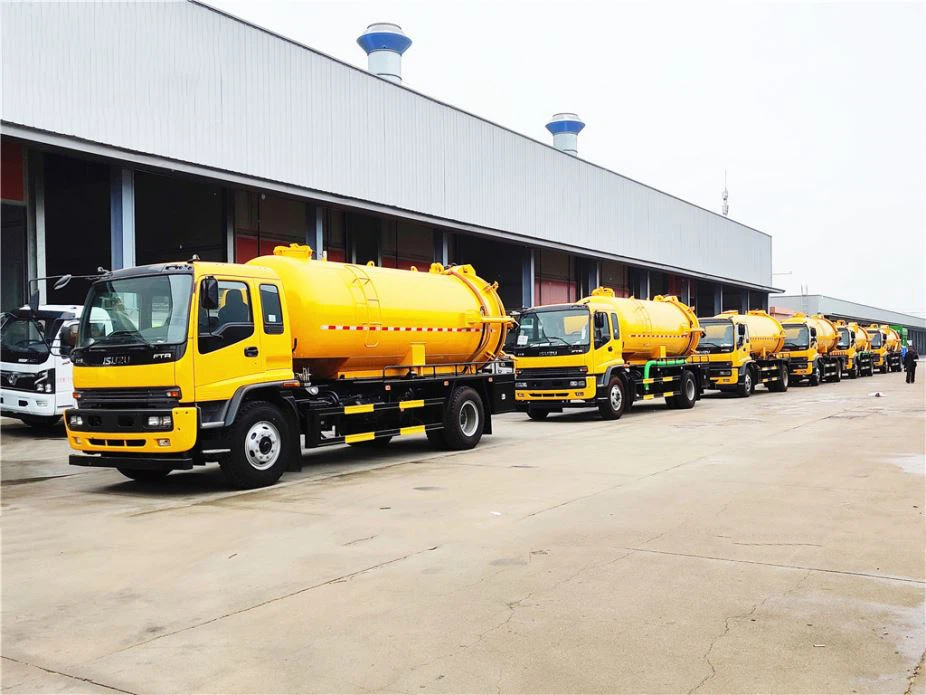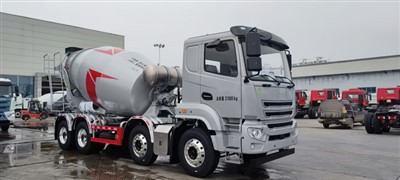Truck with Freezer: A Comprehensive Guide to Refrigerated Transport

In today’s rapidly changing marketplace, the demand for refrigerated transportation has surged. A truck with a freezer is an essential vehicle for industries that require temperature-sensitive products. From food suppliers to pharmaceuticals, these trucks ensure goods are delivered in perfect condition. This article delves into the features, benefits, types, applications, and maintenance of trucks equipped with freezers, providing a thorough understanding to help you make informed decisions.
Understanding Refrigerated Trucks
What is a Truck with Freezer?
A truck with a freezer, commonly known as a refrigerated truck or a reefer truck, is specifically designed for transporting perishable goods at controlled temperatures. The refrigeration system maintains a consistent temperature within the cargo area, ensuring that items such as fresh food, frozen meals, and medical supplies remain safe during transit.
Importance of Refrigerated Transport
Refrigerated transport is crucial for various industries, including:
- Food and Beverage: Ensuring freshness and preventing spoilage.
- Pharmaceuticals: Maintaining the efficacy of temperature-sensitive medications.
- Floral Supply: Keeping flowers fresh during delivery.
- Biotechnology: Transporting biological samples safely.
Types of Trucks with Freezers
1. Box Trucks
Box trucks with freezers are the most common type used for local deliveries. They have a fully enclosed cargo area, allowing for efficient temperature control. Their compact size makes them ideal for navigating urban environments.
2. Trailers
Refrigerated trailers are semi-trailers used with larger trucks for long-distance transportation. These units can be detached from the truck, allowing for easier loading and unloading.
3. Vans
Refrigerated vans offer additional flexibility for small deliveries. These vehicles are perfect for businesses wanting to maintain a fleet of smaller vehicles for urban areas.
4. Multi-Temperature Trucks
These trucks are equipped with multiple compartments, allowing for the transportation of various products that require different temperatures, increasing efficiency.
Key Features of Refrigerated Trucks
1. Insulated Cargo Area
The cargo area is typically insulated with high-quality materials to minimize heat exchange and maintain internal temperature.
2. Active Refrigeration System

Most refrigerated trucks utilize either a mechanical or a eutectic refrigeration system to keep the cargo area cold. These systems can be powered by the vehicle’s engine or a separate generator.
3. Temperature Control Systems
Advanced temperature control systems allow operators to monitor and adjust temperatures remotely, ensuring correct storage conditions for sensitive products.
Examples of Temperature Ranges
| Type of Goods | Required Temperature |
|---|---|
| Fresh produce | 32°F to 41°F (0°C to 5°C) |
| Frozen goods | -10°F to 0°F (-23°C to -18°C) |
| Pharmaceuticals | 36°F to 46°F (2°C to 8°C) |
Applications of Trucks with Freezers
1. Food and Beverage Distribution
Refrigerated trucks are critical for food distributors, ensuring products remain fresh during transportation from farms to tables.
2. Healthcare Logistics

The pharmaceutical and biotechnology sectors rely on temperature-controlled shipping to transport sensitive medical products and samples.
3. E-commerce Delivery
As the demand for online grocery shopping increases, refrigerated trucks play a vital role in delivering perishable goods to consumers’ doorsteps.
Benefits of Using a Truck with Freezer
1. Quality Assurance
Maintaining the proper temperature ensures the quality and safety of perishable goods, reducing wastage.
2. Long-Distance Transportation
These trucks enable the transportation of goods over long distances while preserving their quality, opening up new markets for businesses.
3. Regulatory Compliance
Many industries require strict adherence to regulations concerning the transportation of temperature-sensitive goods; refrigerated trucks help ensure compliance.
Choosing the Right Truck with Freezer
1. Assessing Your Needs
Consider the following factors when selecting a refrigerated truck for your business:
- Type of Goods: Determine the temperature requirements based on your products.
- Size and Capacity: Choose a truck size that accommodates your load while offering ease of maneuverability.
- Distance: Identify whether you’ll be making local deliveries or transporting goods over long distances.
2. Budget Considerations
Evaluate your budget for purchasing or leasing a refrigerated truck, factoring in maintenance and operational costs.
3. Leasing vs. Buying
Weigh the pros and cons of leasing versus buying a refrigerated truck based on your business model and operational needs.
Cost Comparison Table
| Option | Initial Cost | Maintenance Cost | Flexibility |
|---|---|---|---|
| Buying | Higher | Variable | Low |
| Leasing | Lower | Often covered | High |
Maintenance Tips for Refrigerated Trucks
1. Regular Inspections
Perform routine checks on the refrigeration unit to identify any potential issues early on, helping to prevent major failures during transportation.

2. Clean the Interior
Regularly clean the cargo area to prevent contamination and ensure food safety.
3. Monitoring Temperature
Invest in temperature tracking devices to monitor the conditions within the truck continuously, allowing for immediate corrective actions if temperatures deviate from the desired range.
Future Trends in Refrigerated Transport
1. Technological Advancements
The incorporation of telematics and IoT technology enables enhanced tracking and management of refrigerated trucks, providing real-time data on temperature and location.
2. Sustainability Focus
The push for greener solutions is leading to the development of eco-friendly refrigerated trucks that use less energy and emit fewer greenhouse gases.
3. Demand for E-commerce
The rise of online shopping for perishable goods significantly increases the demand for efficient refrigerated transport solutions.
FAQ About Trucks with Freezers
1. What are the benefits of using a truck with a freezer?
The primary benefits include maintaining the freshness and safety of perishable goods, ensuring regulatory compliance, and allowing for long-distance transport.
2. How do refrigeration systems in trucks work?
Refrigeration systems function through a compressor, which cools the air inside the cargo area, and an evaporator that circulates cool air within the space.
3. What types of goods require refrigerated transport?
Common goods include perishable foods, pharmaceuticals, flowers, and biological samples that require strict temperature control.
4. How can I ensure my refrigerated truck is well-maintained?
Regular inspections, cleaning, and temperature monitoring are essential for proper maintenance and preventing costly breakdowns.
5. Can I lease a refrigerated truck?
Yes, leasing is a common option for businesses seeking flexibility and lower initial costs when it comes to refrigeration transportation.
6. What should I look for when buying a refrigerated truck?
Consider the size, temperature requirements, budget, and whether you’ll need a specific type of truck (box, trailer, etc.) based on your business operations.
